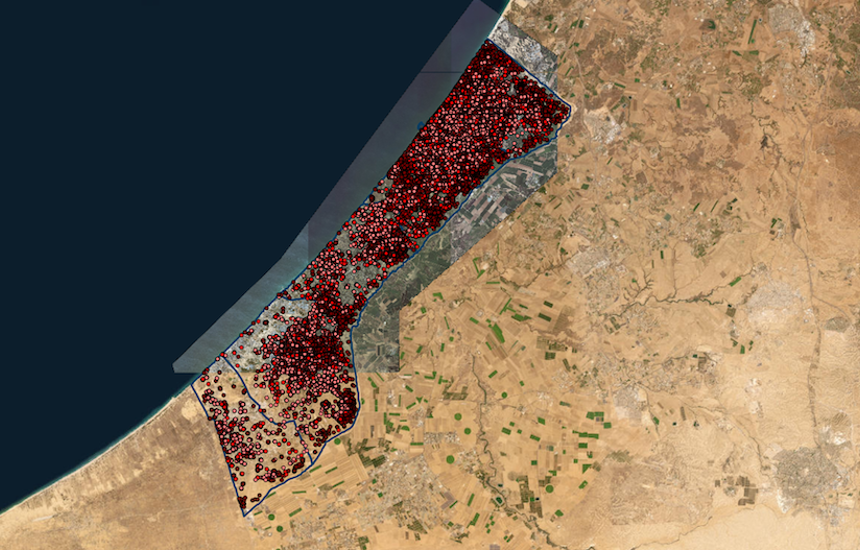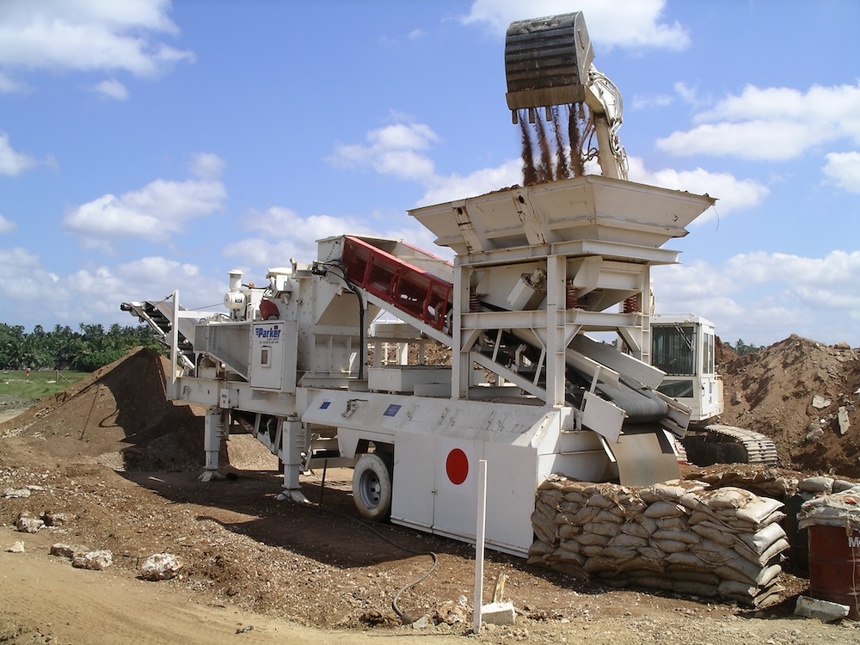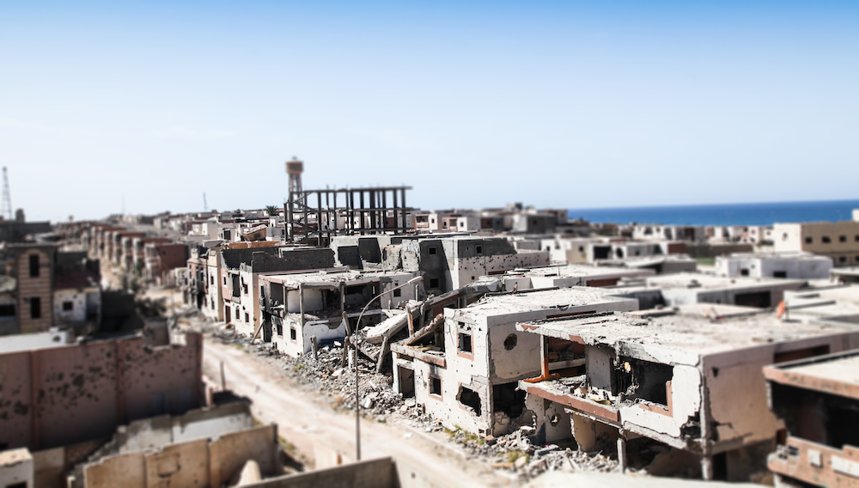This week of escalation marks a devastating year across the Middle East. HALO has staff and operations in many of the countries and territories touched by the spreading conflict including in Israel, the West Bank, and Yemen.
We do not yet have operations in the Gaza Strip, but we know there is a desperate humanitarian need for experts to dispose of unexploded bombs, missiles and other dangers. We are currently exploring all angles in order to be able to operate there safely and effectively.
In many conflicts, the first work for HALO is in surveying the terrain and opening safe routes for food convoys and medical care. But in one of the most densely populated places on earth, where according to the UN, 63 per cent of the buildings have been destroyed or damaged, it’s not just the explosives that can be seen that are a risk. The dangers hidden amid the destruction are going to be a major humanitarian issue.

Damaged and destroyed buildings in Gaza
Collapsed breezeblock and concrete slab buildings, contaminated with explosives, have come to be known by the sour 21st Century phrase ‘conflict rubble’. The UN’s interim damage assessment estimates there is 42 million tons of rubble in Gaza. HALO has developed techniques to safely deal with this kind of dangerous debris in recent urban battlefields such as Falluja in Iraq, Sirte in Libya and Ta’iz in Yemen.
It is a specialism that dates back to our clearance of West Kabul in the mid-1990s. HALO developed new procedures and imported and deployed armoured shovels, backhoes, bulldozers, a tracked crane and a towed stone crusher. Some have likened the operation to sifting the explosives from West Kabul through a giant mechanised sieve.
This early mechanical work in Kabul informed much of the subsequent development of machines in mine action all over the world. We did a similar job on a huge landmine-filled earth barrier in Jaffna, Sri Lanka in 2009 where we trucked thousands of tonnes of soil, explosives and rubble to be safely processed through a screener that could withstand the detonation of mines.

Explosives screening in Sri Lanka
The explosive challenges in Gaza are likely to include deeply buried aircraft bombs that have failed to explode, munitions ‘kicked out’ by strikes on arms caches and the remains of land fighting such as improvised explosive devices and anti-tank weapons.
HALO’s expertise in rubble removal across the Middle East includes not just the technical aspects of armouring commercial machinery like excavators and safely removing explosives, but the complex social, political and environmental problems that will need to be solved in a dense urban environment like Gaza.
Removing rubble will involve sensitively managing the expectations of a traumatised population eager to return home, who may have family members buried in the remains of buildings that need to be cleared away.

Destruction in Sirte, Libya
City settings also bring non-explosive clearance hazards such as power lines, sewage, asbestos and other challenges not found in a rural minefield. Complex questions of housing, land and property rights will require working methods that include community partnerships, transparency and coordination with multiple authorities.
In Gaza, all of this will be complicated by the territory’s uncertain governance status and the blockade that prevents the importation of building materials. HALO’s experience of recycling concrete and steel could be an important solution to the sustainability of any reconstruction plan. In Sri Lanka, the rubble HALO screened for explosives was turned back into bricks to build homes for IDPs.
Gaza is a uniquely complex operating environment, but HALO has been working in difficult and dangerous places for decades. By focusing on getting the job done, displaying complete independence and building connections to communities in need, we have been able to save lives from Colombia to Kandahar.
This experience is crucial, because for all the technical, safety and political challenges of clearing explosives in Gaza, the absolute primary requirement above all others, will be consent.


